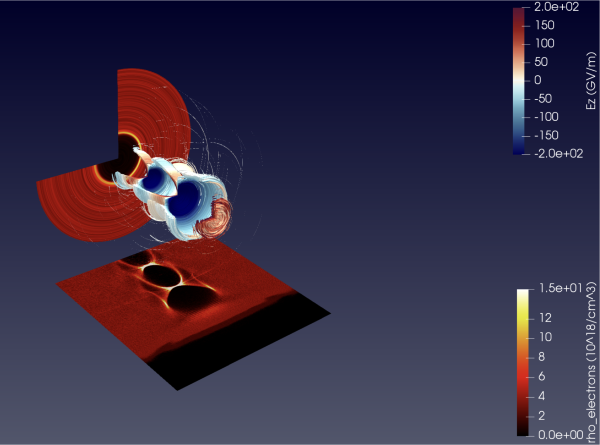
Alec Thomas is part of the team from the U-M College of Engineering Gérard Mourou Center for Ultrafast Optical Science that is building the most powerful laser in the U.S.
Dubbed “ZEUS,” the laser will be 3-petawatts of power. That’s a ‘3’ with 15 zeros. All the power generated in the entire world is 10-terawatts, or 1000 times less than the ZEUS laser.
The team’s goal is to use the laser to explore how matter behaves in the most extreme electric and magnetic fields in the universe, and also to generate new sources of radiation beams, which may lead to developments in medicine, materials science, and national security.
“In the strong electric fields of a petawatt laser, matter becomes ripped apart into a `plasma,’ which is what the sun is made of. This work involves very complex and nonlinear physical interactions between matter particles and light. We create six-dimensional models of particles to simulate how they might behave in a plasma in the presence of these laser fields to learn how to harness it for new technologies. This requires a lot of compute power,” Thomas said.
That compute power comes from Great Lakes, the university’s fastest high-performance computing cluster. The team created equations to solve a field of motion for each six-dimensional particle. The equations run on Great Lakes and help Thomas and his team to learn how the particle might behave within a cell. Once the field of motion is understood, solutions can be developed.
“On the computing side, this is a very complex physical interaction. Great Lakes is designed to handle this type of work,” said Brock Palen, director of Advanced Research Computing, a division of Information and Technology Services.
Thomas has signed up for allocations on the Great Lakes HPC cluster and Data Den storage. “I just signed up for the no-cost allocations offered by the U-M Research Computing Package. I am planning to use those allocations to explore ideas and concepts in preparation for submitting grant proposals.”
Learn more and sign up for the no cost U-M Research Computing Package (UMRCP).
Prof. Thomas’ work is funded by a grant from the National Science Foundation.
